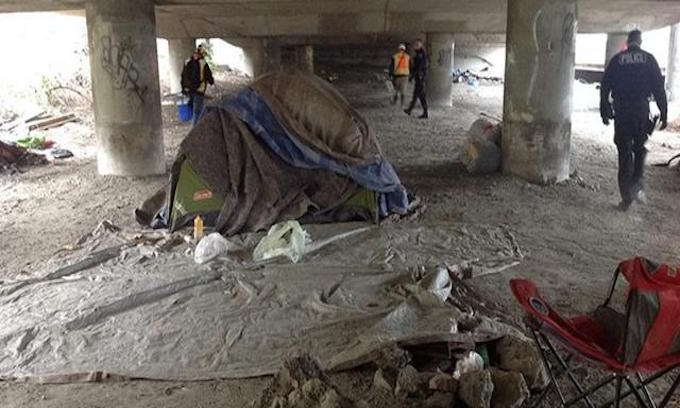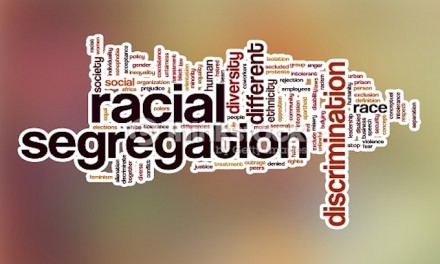THE public shame of a lawless and squalid homeless squatters’ camp called The Jungle within sight of the downtown skyline should be enough to compel collective action. Add in a recent mass shooting, rapes, open sewers and even a pair of burned kittens.
This is not a time for wavering about the path forward.
Mayor Ed Murray has a good plan for moving squatters out of the greenbelt that runs along I-5 from the Rainier Brewery to the I-90 interchange. Move people out, compassionately connecting them to services, and then open up the dense vegetation with roads accessible to service crews and police. This plan bears no resemblance to past bulldozer-led sweeps that simply displaced homeless people.
Teams from the Union Gospel Mission — at no expense to the city — already have helped dozens of people leave The Jungle for shelter, treatment or other housing. Among them is a woman whom outreach workers saw being sexually assaulted in The Jungle. There’s also at least one child now in a better place than The Jungle.
The Jungle’s population has shrunk dramatically. City staff say there is room in shelters for everyone who wants to leave the greenbelt, paid for by part of the extraordinary $49 million a year Seattle spends on homeless services.
Murray’s plan has worked so far, in part, because he initially set a deadline of two weeks.
That deadline is now at hand, and Murray himself undermined it last week by admitting he was “making this up as we go along.” Two weeks now appears to be … whenever. And members of the Seattle City Council are talking about extending port-a-potties into the greenbelt, effectively sanctioning The Jungle.
This is a familiar path. Empathy leads to acquiescence, which has led to a squalid camp existing for decades. No one wants sweeps of the homeless, or arrests of homeless people solely because they’re camping. But Seattle must set a firm threshold for conditions it is willing to tolerate. The Jungle is far beneath it.
Cleaning up The Jungle is a test of the city’s resolve to truly address homelessness. Longterm solutions must involve the state, which continues to underfund inadequate mental health and drug treatment systems, and the federal government, which has retreated from its moral obligation of subsidized housing.
But within the city’s control is the shelter and transitional housing system. It is well overdue for a re-evaluation, because the tens of millions spent have not made a dent in the numbers of people sleeping on the street. In fact, the opposite has happened.
In the coming months, a consultant, Barbara Poppe, is due to deliver recommendations for overhauling the homeless services that Seattle buys with its many millions of dollars. Implementing those recommendations is going to require backbone from city leaders, because change is difficult.
The solution to Seattle’s homeless problem cannot be more of the same. City Hall must start by firmly saying no to The Jungle.
Editorial board members are editorial page editor Kate Riley, Frank A. Blethen, Ryan Blethen, Brier Dudley, Mark Higgins, Jonathan Martin, William K. Blethen (emeritus) and Robert C. Blethen (emeritus).
___
(c)2016 The Seattle Times
Visit The Seattle Times at www.seattletimes.com
Distributed by Tribune Content Agency, LLC.
—-
This content is published through a licensing agreement with Acquire Media using its NewsEdge technology.



















Recent Comments